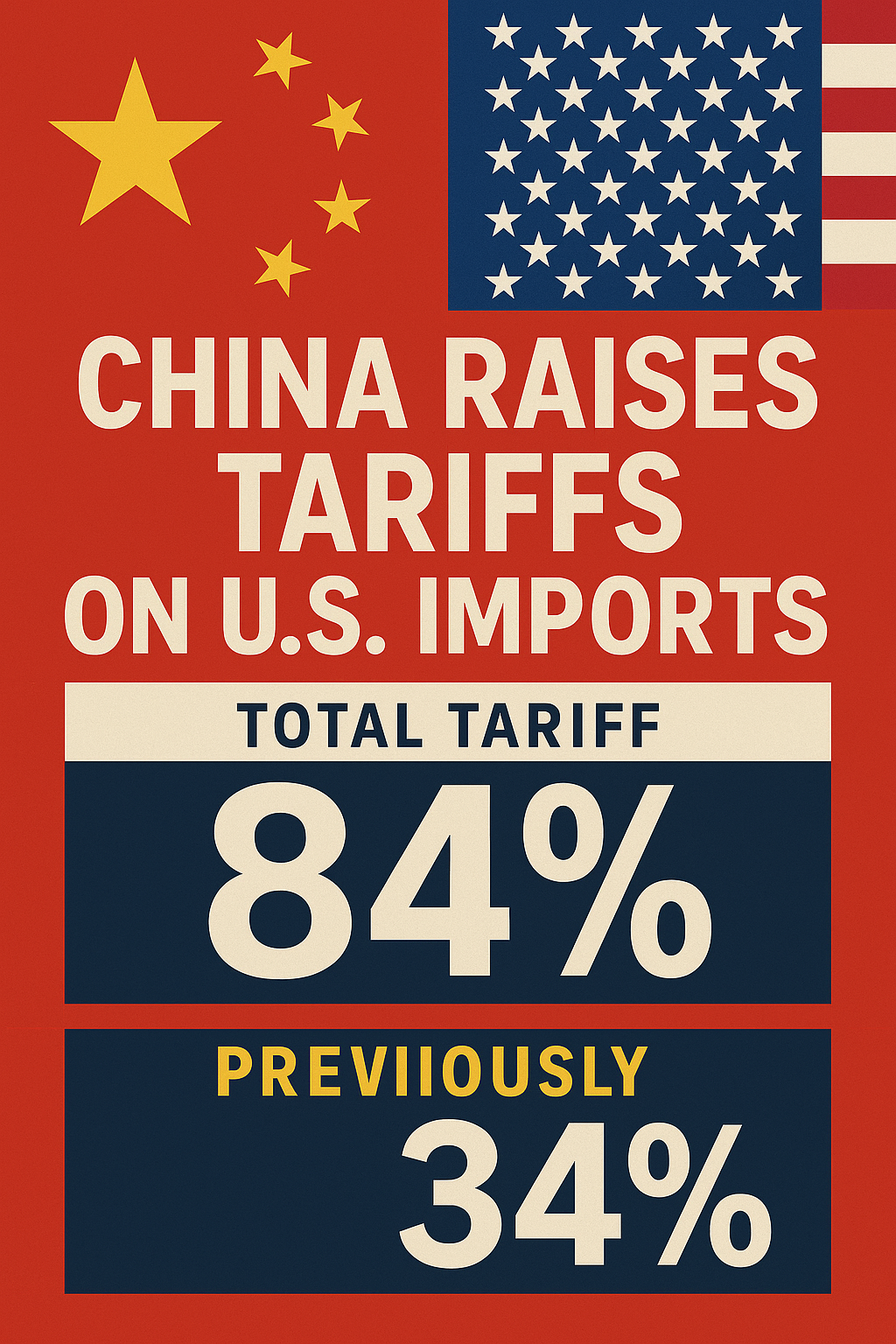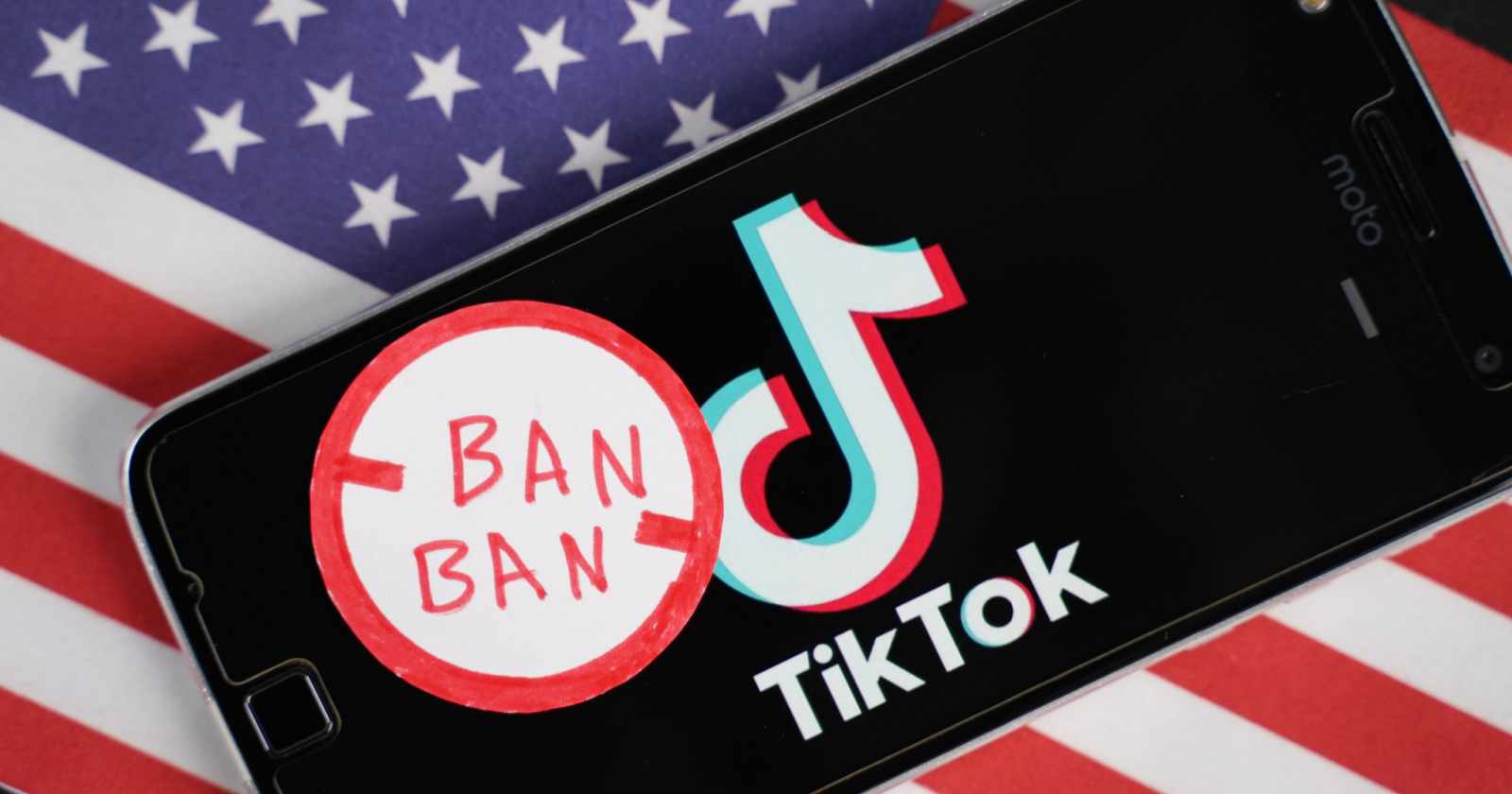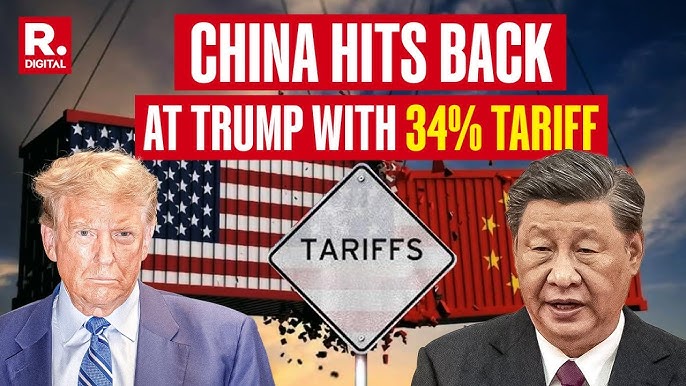China increasing its total tariffs on U.S. goods to 84% as of April 9, 2025
🇨🇳 China Raises Tariffs on U.S. Imports to a Total of 84%
On April 9, 2025, China announced that it is increasing tariffs on all U.S. imports to a total of 84%, up from the previous 34%. This major move comes in direct retaliation to the 104% tariff the United States recently imposed on Chinese goods.
📌 Source: Reuters
🔙 Background of the Trade Dispute
Trade tensions between the U.S. and China have been escalating over the past few months:
- Early March 2025: China imposed 10–15% additional tariffs on select U.S. goods and placed 25 U.S. firms under export and investment restrictions.
- In response, the U.S. levied a 10% blanket tariff on all Chinese imports, citing concerns about intellectual property theft, trade imbalance, and fentanyl trafficking.
- On April 8, 2025, the U.S. dramatically escalated the conflict by raising tariffs on Chinese goods to a total of 104%.
📌 Source: Business Today
🔥 Latest Development
- On April 9, China’s Ministry of Finance declared the move a response to “repeated errors” in U.S. trade policy.
- The new 84% tariff covers a wide range of American products, including agriculture, technology, and energy.
- Chinese officials accused the U.S. of violating WTO regulations and vowed continued countermeasures.
📌 Source: Huffington Post Spain
📉 Market Reaction
- The announcement triggered a sharp selloff in U.S. stock futures:
- Dow futures fell 517 points
- S&P 500 E-minis dropped 1.21%
- Nasdaq 100 E-minis dropped 1.07%
- Investors are growing increasingly concerned about rising inflation and the potential for a global recession.
📌 Source: Reuters
🌍 Global Reactions
- The European Union and other major economies have expressed deep concern.
- Many fear that the escalating U.S.-China trade war could destabilize global supply chains and the broader world economy.
📊 Visuals & Charts:
📌 Conclusion
The ongoing tariff exchange between the U.S. and China represents one of the most significant disruptions in global trade in recent years.
The increased tariffs raise costs for businesses and consumers alike, and observers worldwide are hoping the two economic superpowers will return to the negotiating table before the situation worsens.




